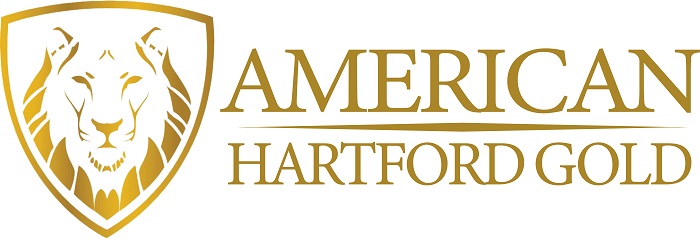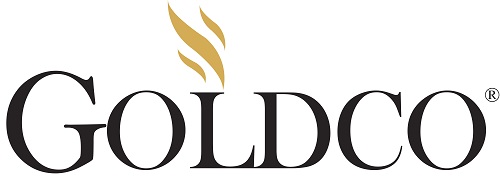Last Updated on March 17, 2024 by Ben
Can an Employer Stop Matching the 401(k) Contributions
Contributing to a 401(k) is a great way to save for retirement, but can an employer stop matching the 401(k) contributions? If that is the case, then what should you do? This can be a difficult situation, but there are a few things you can do to mitigate the damage. This post explains what happens when an employer ceases matching contributions and what you can do to safeguard your funds.
How a Matching Contribution Works
Employer contributions to a 401(k) are referred to as a “matching 401(k) contribution.” If you put in $100 to your 401(k), your company could match that amount. That means you’ll have twice as much money saved up for retirement.
On the other hand, the employer has the option to discontinue matching contributions at any moment. Even if they don’t cease giving entirely, they may stop matching your donations completely. To ensure you have enough money saved for your retirement, you must contribute to your 401(k).
An employer can discontinue matching 401(k) contributions for various reasons. Employee contributions may not be matched if the organization is experiencing financial difficulties. Another possible explanation is that the firm wants to incentivize employees to increase their 401(k) contributions because they believe they are doing so insufficiently.
Don’t stop contributing to your 401(k) if your company no longer matches your contributions (k). If you’re looking to save for retirement, this is an excellent option. To make up for the lack of an employer match, you may only need to increase your contributions by a small amount.
What Is the Contribution Limit for a 401(k) Plan?
Many 401(k) plans have an $18,000 annual contribution maximum. Some companies, on the other hand, may permit a bigger contribution. Take advantage of the greater contribution limit if you’re fortunate enough to have a company that does. Saving for retirement might be easier if you contribute the maximum amount allowed under your company’s 401(k).
Catch-up contributions may be available to anyone over the age of 50. People above the age of 50 can make catch-up contributions to their 401(k) plans. The annual catch-up contribution cap is $24,000.
It is possible to increase your retirement savings by contributing as much as possible to a 401(k). As a result, you may wish to explore alternative retirement savings choices. A Roth IRA, for instance, may be something you’d like to get started on. In comparison to traditional 401(k) plans, the requirements for Roth IRAs change slightly, but they are still an excellent vehicle for setting money aside for retirement.
How Much Do Employers Match a 401(k) Contribution?
An employer does not guarantee 401(k) contributions. When it comes to matching employee contributions, employers are neither legally compelled to do so nor are they legally required to continue doing so after starting. A company that matches employee contributions must follow the conditions of the matching program if it chooses to.
Changing the conditions of a matching program midway through the year to require employees to pay $200 per month to obtain a match, for example, would be illegal for an employer running the program. Employers must tell their workers in writing to suspend matching 401(k) contributions.
Notifying employees 30 days before the change takes effect is recommended. Employees may wish to consider contributing to a Roth IRA if their company no longer matches 401(k) contributions. Employees can contribute to their retirement savings accounts, such as a Roth IRA, without their employer’s permission. Even if their company no longer matches their 401(k) contributions, employees can keep contributing to a Roth IRA.
A financial advisor should be consulted if you have any queries regarding your employer’s matching program or if you are considering altering your retirement savings plan. A financial adviser can help you figure out how much money you need to save for retirement and which retirement plan is best for you.
When Your Employer Stops Matching 401(k) Contributions
If you’re like most Americans, you rely heavily on your 401(k) plan to help fund your retirement (k). Suppose your company suddenly decides to discontinue contributing a matched amount to your retirement plan?
The news that your company will no longer match 401(k) contributions might be a shock. That’s free money, after all! If this happens to you, there are a few things to consider.
It’s crucial to remember that your employer is not obligated to match your payments to your 401(k). Even while it’s lovely when they do, you don’t have the right to expect it.
The next point doesn’t always indicate that your company does not appreciate your retirement savings if they cease matching your contributions to your 401(k). As a matter of economic necessity, they may have to do so.
To sum things up, it’s crucial to continue saving for retirement even if your company no longer matches your contributions to your 401(k). Several methods to achieve this include raising your contributions or finding new ways to save for the future.
How Employees Can Offset the Hit
The news that your employer will no longer match your 401(k) contributions may surprise you. This perk was a significant factor in your decision to join this organization in the first place. No need to freak out, though. It’s possible to mitigate the financial impact of your employer’s decision to discontinue matching your contributions to your 401(k). Here are things you can take to lessen the impact of your employer’s 401(k) matching contributions ending:
Increase Contributions
Employees can make up the gap in 401(k) contributions if their company no longer matches their contributions. But remember that every little bit helps. It doesn’t matter how little increase employees can make, and they will be better off in the long term.
Employees may make it easy for themselves to contribute more by doing a few simple things. For starters, they can look at their budget and see if there are any places where they can save money. This will allow you to put more money into your 401(k) (k). If there are any employer matching schemes still in existence, employees should also take advantage of them. The company may still give additional benefits, like matching money for increased contributions, even if they no longer match contributions.
Employees who can boost their 401(k) contributions even by a bit will be better off. Employees can mitigate the impact of an employer’s decision to discontinue matching 401(k) contributions by prudently taking advantage of company matching programs and budgeting.
Consider a Roth IRA
Consider a Roth IRA to compensate for the loss of employer matching 401(k) contributions. After-tax monies can be contributed to a Roth IRA, meaning taxes have already been paid on the money you’re depositing. When you retire, you can draw tax-free distributions from your IRA.
The most significant advantage of a Roth IRA is the tax-free growth it provides. In other words, if you retire with less money in the bank because you’re in a lower tax rate, you’ll have more money to spend in retirement.
Other considerations must be made before deciding whether a Roth IRA is the appropriate choice for you. To take advantage of the current tax benefit, you should choose a conventional IRA if your tax rate in retirement is expected to be greater than it is today.
The amount of money you may put into a Roth IRA will also depend on your financial situation. If you made more than $6000 in taxable income in 2020, you can’t donate more than that amount.
Don’t Tap Into a 401(k)
The temptation to take money out of your 401(k) when your company no longer matches contributions might be strong, but it’s best to resist. As well as depleting your retirement savings, withdrawing money from a 401(k) account incurs taxes and penalties.
Before dipping into your 401(k), there are several choices that you should consider. To make ends meet, you might be able to get a part-time job or do some freelance work. If you have an extra amount in your budget, you may consider increasing your 401(k) contributions. Your retirement savings will continue to grow despite the lack of employer matching payments.
Before taking money out of your 401(k), have an appointment with a financial expert to determine whether you have any other choices. You should only take money out of your 401(k) as a last resort, so be sure you’ve looked into all your other options.
Recommended IRA Companies
Augusta Precious Metals



www.augustapreciousmetals.com



Star Rating
Due to the current economic downturn, many firms have reduced their 401(k) contributions. This may come as a shock to employees who were banking on the extra funds to help them save for their golden years.
The thing news is that there are still ways to enhance your retirement funds. Augusta Precious Metals is a company that deals in precious metals.
To assist you in achieving your retirement objectives, Augusta provides many precious metal IRA and 401(k) choices. There are four metals available for investment with Augusta: gold, silver, platinum, and palladium. It’s also possible to eliminate many expenses connected with standard IRA and 401(k) providers because Augusta is an independent direct seller.
Augusta Precious Metals is a viable option for your company-sponsored retirement plan if you’re seeking something different. By using Augusta, you have the power to direct the course of your retirement and guarantee that you meet your objectives.
American Hartford Gold



www.americanhartfordgold.com



Star Rating
American Hartford Gold may be a good option when seeking an alternative to the 401(k). It is possible to invest in genuine gold and other precious metals through American Hartford Gold, a gold IRA firm. Your gold may be stored in a safe location or delivered to you directly at your house with American Hartford Gold. In addition, American Hartford Gold has several extra perks, like as
- To be able to invest in gold and other precious metals in the physical form
- A safe place to keep your precious metals.
- Possibility of receiving your gold by mail
- Additional advantages and services are also available.
Goldco



www.goldco.com



Star Rating
You may put your retirement funds into gold through a gold IRA. In addition to tax-deferred growth and the potential to hedge against inflation, this sort of account has several advantages. Apart from that, gold has always been an excellent hedge against market volatility. If your company no longer matches your 401(k) contributions, this might be an excellent alternative since it allows you greater control over your investments.
A gold IRA can be used to invest in gold bullion, gold ETFs, or gold mutual funds. You can also put your investment in other precious metals, such as silver and platinum. Investing in a gold IRA may be made easier with the aid of Goldco. They’re a prominent distributor of gold IRAs, and they can assist you in converting your 401(k) into a gold IRA. Investing in gold may also be made easier with the assistance of these professionals.
Final Thoughts – Can an Employer Stop Matching the 401(k) Contributions
Regarding saving for retirement, the loss of employer matching 401(k) contributions might be a hindrance but is not insurmountable. If you lost a lot of money in your retirement savings, there are things you may do to make it up. Employees who take proactive actions to counteract the impact of missed employer matching contributions can assist in guaranteeing that they are on pace to accomplish their retirement savings objectives.


